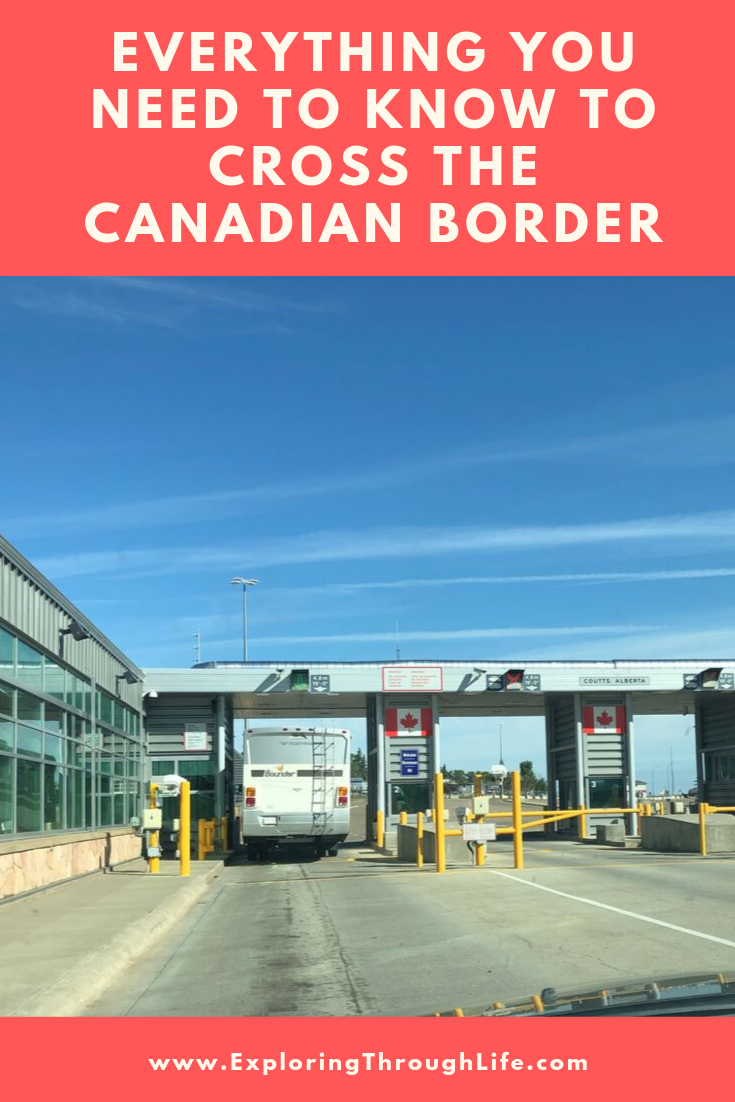Paperwork Essentials for Crossing the Canadian Border

As more people seek to explore the vast landscapes, cultural richness, and economic opportunities Canada has to offer, understanding the essential paperwork for crossing the Canadian border becomes crucial. Whether you're planning a short visit or a permanent move, ensuring you have all your documents in order will facilitate a seamless entry process. This blog post will serve as your comprehensive guide to navigating the paperwork essentials for a hassle-free Canadian border crossing.
Understanding Visa Requirements

Canada's visa policies vary based on your country of origin, the purpose of your visit, and the duration of your stay. Here's what you need to know:
- Visitor Visa (Temporary Resident Visa): Required for nationals of countries not listed for visa-exempt travel. It's crucial for tourism, business visits, or transit through Canada.
- eTA (Electronic Travel Authorization): For those eligible, this facilitates entry without a visa. It's applicable for air travel only.
- Study Permit: International students must obtain this to pursue their education in Canada.
- Work Permit: Necessary for those looking to work temporarily or engage in specific business activities.
- Permanent Residence (PR): For those looking to move to Canada permanently. There are various pathways, including Express Entry, Provincial Nominee Programs, and Family Sponsorship.
🔍 Note: Always check the latest visa requirements and travel advisories from official Canadian government websites or consult with a visa specialist for personalized advice.
Essential Documents for All Visitors

Regardless of your visa status, the following documents are crucial for a smooth entry:
- Valid Passport: Ensure your passport is valid for the entirety of your stay and has enough blank pages for visa stamps.
- Proof of Funds: Demonstrates you can support yourself during your stay. This could be bank statements or letters from financial institutions.
- Proof of Accommodation: Hotel bookings, invitations from hosts, or lease agreements showing where you'll be staying.
- Travel Itinerary: Including flight reservations, itinerary, or travel agency details if your stay involves a tour.
- Letter of Employment: If you're visiting for business, this can support your intent of visit and departure.
- Return Ticket or Proof of Departure: This reassures border officials that you do not intend to overstay.
Additional Documents for Specific Purposes

Here are some additional documents you might need depending on your travel purpose:
| Purpose of Visit | Additional Documents |
|---|---|
| Business | Conference or event registration, business meeting details |
| Education | Letter of Acceptance from a Designated Learning Institution, scholarship letter |
| Work | LMIA (Labour Market Impact Assessment) number, Employment Contract, Professional Credentials |
| Family Sponsorship | Spousal Sponsorship Application, Proof of Relationship |

🔄 Note: Changes to Canadian immigration policies can occur frequently, so staying informed through official channels is advisable.
Border Crossing Tips

- Honesty is the Best Policy: Always declare goods and be upfront about the purpose of your visit.
- Be Prepared for Interviews: Border officials might conduct interviews to verify your intentions and admissibility.
- Understand Customs Regulations: Know what you can bring in and the limits on duty-free allowances.
- Health Documentation: If you're arriving from a high-risk area, ensure you have proof of vaccinations or negative test results as required by Canadian health authorities.
The paperwork involved in crossing the Canadian border can seem daunting, but with proper preparation, it's quite manageable. From visa requirements to ensuring you have the right documentation, being prepared for border crossing means you can focus more on the experiences awaiting you in Canada rather than worrying about entry issues.
Remember, each traveler's journey to Canada is unique, so tailor your documentation preparation to your specific circumstances. Whether it's ensuring your passport has enough validity, preparing for an interview, or understanding the nuances of Canadian customs, a well-informed approach will make your entry into Canada as smooth as the landscapes you've come to explore.
Do I need a visa to enter Canada?

+
Not necessarily. Depending on your citizenship, you might require a visitor visa, an eTA for air travel, or might be exempt from both. Check Canada’s visa policy for specific requirements.
How long does it take to get a Canadian visa?

+
The processing time for visas varies based on the type of visa, your country of application, and completeness of your application. It can range from a few weeks to several months, so apply well in advance.
What happens if I’m denied entry into Canada?

+
If entry is denied, you might need to return to your country of origin or be sent back. Reasons for denial can include issues with your documentation, inadmissibility, or suspicion of overstay or other violations. You can reapply or appeal the decision depending on the specific circumstances.